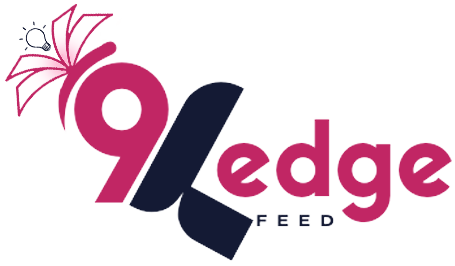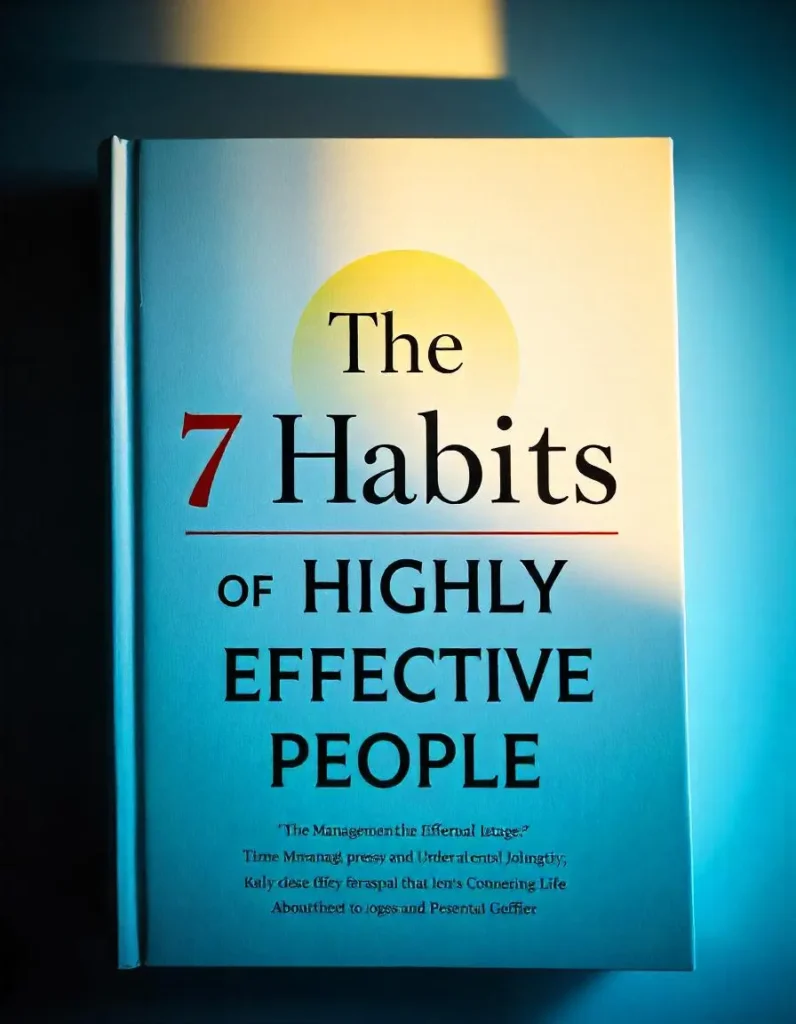All of us desire to increase our efficiency and effectiveness in private and parenthood private and professionally. That is a very powerful tool that will assist you in the achievement of this and it is known as Dr. Stephen Covey’s Circle of Influence and Circle of Concern. Coop is the author of the excellent book The 7 Habits of Effective People which gives one a profound perception of how time, energy, and importance can be applied to become much more proactive. Sticking to the given prompt, we will explore in this blog how Covey’s framework might help you to alter how you would like to approach time and energy management and would like to do things.
Understanding the Circle of Concern vs Circle of Influence
In The 7 Habits of Highly Effective People, Covey differentiates between two important areas of focus:
- The Circle of Concern: This represents all the things that we care about but cannot control—things like the economy, political events, or the weather. While these may concern us deeply, they are outside our direct sphere of influence.
- The Circle of Influence: This smaller circle lies within the Circle of Concern and represents the things we can directly control or influence. These may range from health, relationship, career, time, and energy budgets among others.
How Covey’s Circle of Influence Can Boost Your Productivity
So in understanding what is in the Circle of Influence, people will be able to manage their time and energy towards those things. Too often, we waste time and energy on issues within our Circle of Concern—things we can’t change or control. When resources are invested in things that we have control over, we achieve what we desire because the resources are directed towards positive change.
For example, instead of obsessing over global political events, a proactive person will focus on their personal health, career development, or creating a supportive work environment. This change in thinking is the way forward in enhancing performance when offering services.
The Power of Proactivity
Covey’s first habit—Be Proactive®—is at the heart of this shift. Proactive individuals understand that their Circle of Control and Circle of Influence are the only areas where they can make meaningful change. They recognize that their actions and decisions are what define their success, not external circumstances.
On the contrary, reactive people often focus their time and energy on things that fall outside of their Circle of Control. This will make people easily get frustrated, and stressed up, and therefore reduce their productivity. Personal initiative is more anchored on the idea of doing what is possible on this planet today and less on who or what one cannot change.
Identifying and Expanding Your Circle of Influence
The first step to becoming more productive is identifying what belongs in your Circle of Influence. Here’s how you can apply this concept:
- List Your Concerns: Write down everything you are concerned about. These can be related to your work, relationships, health, finances, and broader world issues.
- Draw Your Circles: On a piece of paper, draw a large circle to represent your Circle of Concern. Inside this, draw a smaller circle to represent your Circle of Influence.
- Categorize: Now, start placing your concerns inside the appropriate circles. If there’s something you can take action on—like improving your health or focusing on personal development—put it in your Circle of Influence. If it’s something outside your control, place it in your Circle of Concern.
Once you’ve done this, it’s time to focus. Shift your mindset and energy toward the things in your Circle of Influence and let go of those outside it. You’ll find that this simple exercise can drastically improve your ability to stay focused and productive.
How Focusing on Your Circle of Influence Makes You More Productive
When you spend more time in your Circle of Influence, your productivity naturally increases. Here’s why:
- Prioritization: You learn to focus on tasks that you can control, like your health, relationships, or career. By spending time on these areas, you can make real progress.
- Time and Energy Management: Instead of wasting mental energy on concerns you cannot change, you conserve your resources for what you can impact. This makes your work on decision-making as well as time consumption more effective.
- Increased Motivation: By achieving small wins within your Circle of Influence, you build momentum and confidence. These positive outcomes keep you engaged and motivated to work toward larger goals.
The 7 Habits of Highly Effective People
Stephen Covey’s 7 Habits provides a comprehensive framework for personal and professional growth. Here’s a breakdown of each habit, along with key concepts and practical applications:
Habit 1: Be Proactive®
- Key Concept: Taking responsibility for your actions and focusing on things you can control.
- Practical Application: In both personal and professional contexts, begin by recognizing areas where you have control. Make a habit of taking initiative instead of waiting for others to act. When faced with challenges, focus on solutions within your Circle of Influence.
Habit 2: Begin With the End in Mind®
- Key Concept: Defining clear measures of success and setting long-term goals.
- Practical Application: Visualize your future successes and set goals that align with your values. These long-term goals must be subdivided into achievable short-term goals, all the while keeping your sight on achievable short-term goals.
Habit 3: Put First Things First®
- Key Concept: Prioritizing the most important tasks and focusing on what matters most.
- Practical Application: Time management becomes crucial in this habit. Use tools like to-do lists and calendars to ensure that the most important tasks get done first, rather than spending time on things that don’t directly contribute to your long-term goals.
Habit 4: Think Win-Win®
- Key Concept: Approaching every interaction with the mindset of mutual benefit.
- Practical Application: In all personal and professional interactions, seek outcomes where both parties feel satisfied. This cooperative mindset builds stronger relationships and a more collaborative environment.
Habit 5: Seek First to Understand, Then to Be Understood®
- Key Concept: Active listening and valuing others’ perspectives before offering your own.
- Practical Application: Focus on truly understanding others’ viewpoints. Practice active listening in your conversations, and then share your own thoughts with respect and clarity. This habit improves communication and reduces misunderstandings.
Habit 6: Synergize®
- Key Concept: Leveraging the strengths of diverse perspectives to create innovative solutions.
- Practical Application: Use teamwork to solve problems, innovate, and create better outcomes. Encourage collaboration and respect for diverse perspectives to achieve results that you couldn’t accomplish alone.
Habit 7: Sharpen the Saw®
- Key Concept: The importance of regular renewal to maintain motivation, energy, and overall well-being.
- Practical Application: Regularly engage in activities that refresh your body, mind, and spirit. This could involve physical exercise, mental relaxation, or learning new skills to maintain your long-term productivity.
Why Proactive People Are More Effective
Thus, those concentrating on Circle of Influence are usually perceived as the most efficient because they do not bother with what they cannot change. They know that both time and energy are scarce commodities and invest their efforts in the right causes that affect those results that are most relevant.
Also, self-creationally proactive people have better relations, quick problem-solving abilities, and maintain good surroundings for success from home to the workplace.
Conclusion
By applying the principles from Stephen Covey’s The 7 Habits of Highly Effective People, particularly the Circle of Influence concept, you can transform the way you approach your time and energy. Focus on what you can control and influence, and watch your productivity soar.
Remember, proactivity is not about perfection—it’s about intentional action. Start today by identifying what you can control, and make consistent progress toward becoming a more productive and effective person.
FAQs:
Q1: What is the Circle of Concern in The 7 Habits of Highly Effective People?
The Circle of Concern includes all the things that worry or concern you, but are outside of your control, like the weather, the economy, or political events.
Q2: What are the 7 Habits called?
The 7 Habits are:
- Be Proactive
- Begin With the End in Mind
- Put First Things First
- Think Win-Win
- Seek First to Understand, Then to Be Understood
- Synergize
- Sharpen the Saw
Q3: How do I apply the 7 Habits of Life?
You can apply the 7 Habits by starting with Habit 1, Be Proactive. Focus on what you can control and influence, set clear goals, and manage your time effectively to stay productive.
Q4: What is the Circle of Control?
The Circle of Control represents all the things that are within your power to change, such as your thoughts, actions, and decisions. This is similar to the Circle of Influence, but even more personal.
Q5: What is the difference between the Circle of Control and the Circle of Influence?
The Circle of Control includes things you can directly control, like your actions. The Circle of Influence includes things you can affect but not necessarily control, such as others’ decisions or outcomes in your workplace.



